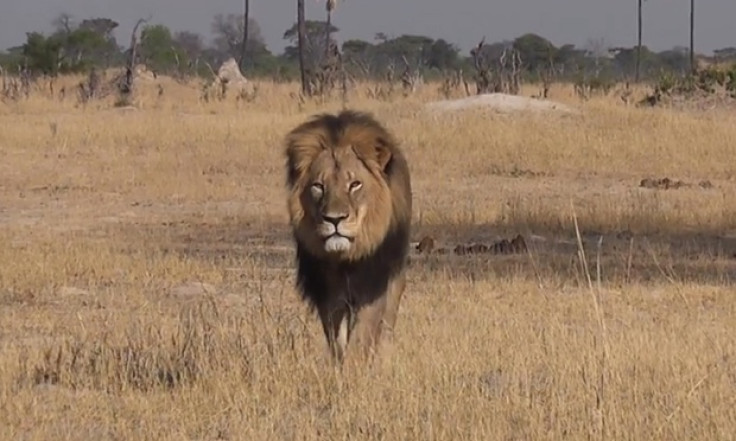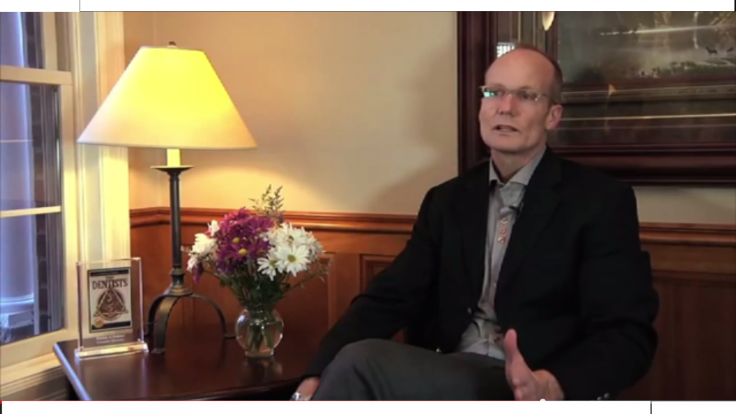Outrage at Isis-style execution of Cecil the lion must result in action

Outrage over the killing of Cecil the lion has swept the globe. Perhaps it's because Cecil was known and loved that his killing has sparked so much revulsion, but his story is not uncommon in the seedy world of "sport", or trophy, hunting.
US dentist Walter Palmer and people like him who somehow need to feel the "thrill" of the kill (often denied yet invariably admitted when hunters talk to each other in hunting magazines and on hunting websites), travel the globe slaughtering magnificent wildlife because they can pay to satisfy this perverted need of theirs.
Cecil was lured out at night. Palmer and his accomplices got up close, used spotlights to blind him, wounded him with a steel arrow from a high-powered crossbow and then caused him to suffer for 40 hours. They also tried to hide his radio collar in order to protect themselves from prosecution. According to the Zimbabwe Conservation Task Force, Cecil, regal patriarch and protector of two prides with many cubs, was then skinned and beheaded – Islamic State (Isis)-style.
Palmer's accomplices, professional hunter Theo Bronkhorst and farm owner Honest Ndlovu, have been charged with poaching offences, for not having the required hunting permit. Police say Palmer, who claims he was unaware of the lion's identity, could also face poaching charges, and thank God for that.
His actions cannot and must not be glossed over with: "Gosh, I didn't realise anyone cared about that lion." Because the fact that Cecil is trending globally on Twitter and this story is making headlines around the world shows that we do care – not just about Cecil but about all the magnificent animals gunned down for a cheap thrill, a trophy or a souvenir photo.
The uncomfortable truth is that if these sadists had had the right paperwork and if they had killed a different lion, in a different spot, we would be none the wiser and there would be no news, no outcry and no petitions.
Canned hunts are big business in Africa, where large private landowners allow hunters to pay thousands of pounds to kill not just lions but also elephants, leopards, rhinos, giraffes, zebras, hippos, deer, antelope – you name it.

According to reports, Palmer is believed to have paid about £32,000 ($50,000, €45,428) to go on the hunt in Zimbabwe that cost Cecil his life. Most hunting occurs on private land, where laws that protect wildlife don't apply or are difficult to enforce. Many of these for-profit ranches operate on a "no-kill, no-pay" policy, so it's in the owners' financial interests to ensure that clients get what they came for.
Paperwork or not, canned hunts are nothing more than pre-packaged slaughters. Lions and other animals are confined to fenced areas so that they can easily be cornered, with no chance of escape. Most of them will have been bred in captivity and then taken from their mothers to be hand-reared by the cub-petting industry.
When they get too big, they may be drugged before being released into a "hunting" enclosure. It takes no skill or strength to track down and kill these beautiful animals. They never stand a chance of escaping, fighting back or surviving, and many, like Cecil, endure a prolonged, painful death.
Well into the 21<sup>st century, how disgusting that some people still think we have the right to force animals into corners to be shot and killed, all for a fleeting diversion. And where's our brave hunter, Mr Palmer, now? In hiding, apparently. It seems it's less fun being the hunted. Palmer, like all hunters, is a coward. Real strength lies in protecting those who are vulnerable, not betraying them.
It's no longer enough to be outraged by the Palmers and the Melissa Bachmans of the world. We need to turn our outrage into united global action to persuade African countries to put an end to the barbaric and nasty "sport" that is decimating African wildlife and to persuade the US and Europe to ban the importation of hunting trophies: heads, tails, feet, horns and more. You can help, by signing Peta's action here: http://petauk.org/cecil.
Mimi Bekhechi began working for Peta (People for the Ethical Treatment of Animals) in 2007. As Peta UK's Director, Bekhechi is responsible for overseeing PETA UK's campaigns and marketing as well as its education and media departments. Bekhechi previously served as the organisation's operations manager and coordinated PETA UK's campaign work in her subsequent role as manager of special projects.
© Copyright IBTimes 2024. All rights reserved.






